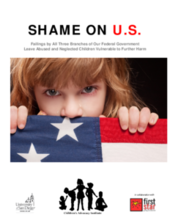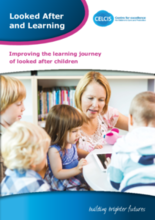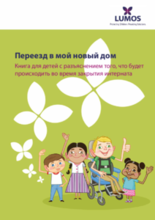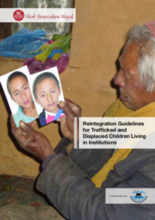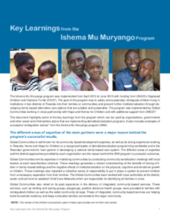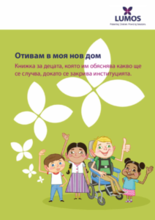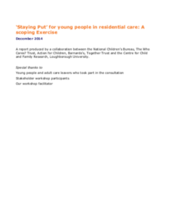Displaying 861 - 870 of 991
This study, produced by the Children’s Advocacy Institute at the San Diego School of Law, examines the activities of the federal government of the United States in regards to enacting and enforcing child welfare laws and ensuring that individual states are complying with minimum federal standards for child protection.
This interpretive study examines the experiences of 54 Ethiopian emerging adults who had aged out of institutional care facilities. Findings are derived from interviews and focus groups in which questions and activities focused on the challenges faced by participants and the supports they relied on throughout the transition process.
This booklet has been designed to help local authorities, schools and their partners work together to ensure they can provide every child, including looked after children, with the kind of positive learning experience which is the foundation for future success.
Целью этой книги является объяснить детям то, что их ожидает во время закрытия интерната.
This document provides guidelines to reintegrating trafficked and displaced children in Nepal, based on the approach and methodology developed and utilized by Next Generation Nepal (NGN) and The Himalayan Innovative Society (THIS).
This document highlights some of the key learnings from the Ishema Mu Muryango program, a program designed to safely and sustainably reintegrate children living in institutions in two districts of Rwanda into their families or communities and prevent further institutionalization.
Целта на тази книжка е да обясни на децата какво да очакват през периода, когато институцията се затваря.
Through a desk review of peer reviewed journal and “grey” literature published in English and Russian languages, this paper provides a review of current deinstitutionalization efforts in the region, identifies potential challenges, describes the need for economic empowerment interventions, and outlines directions for future research.
This video, from Forget Me Not, features the story of Alisha, a young girl in Nepal who was separated from her family and taken to a children’s home in Kathmandu.
This report explores options for young people aging out of residential care (“care leavers”) and the potential challenges and costs of effective implementation of those options.

